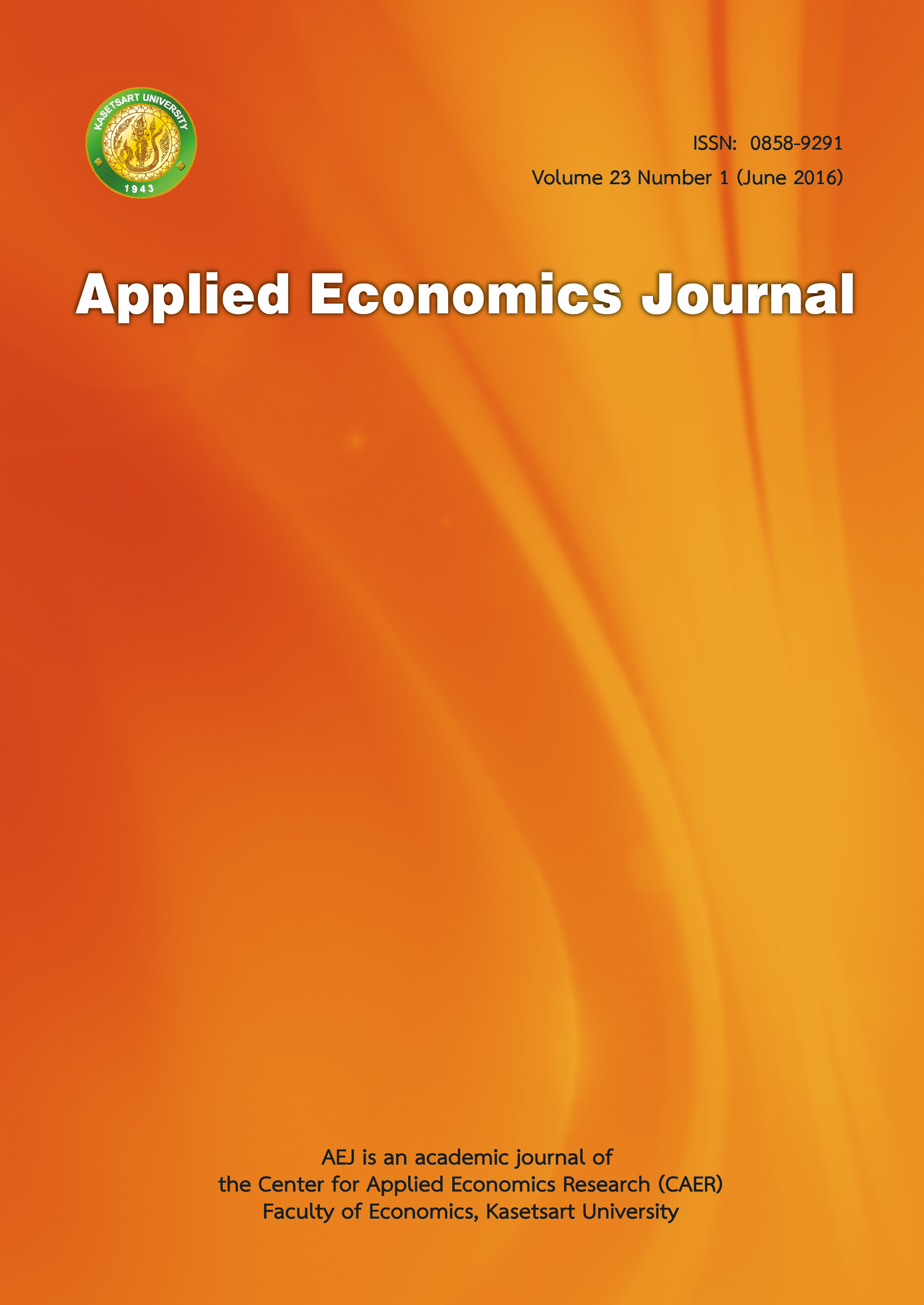Economic and Education Statuses of Thai Households
Main Article Content
Abstract
This issue of Applied Economics Journal is grateful to publish interesting articles from various economists and researchers. The first article authored by Piriya Pholphirul and Siwat Teimtad from the National Institute of Development Administration (NIDA) presents the effects of the education levels and the economic statuses of parents on pre-primary education in Thailand. The results indicate that mother's educational level statistically significantly affects the decision to enroll a child in preschool. It is because a mother considers the long-term benefits that a child will get from pre-schooling. Regarding the economic status, parents from a low-to-middle income family mainly care about a child's skill development obtaining from pre-schooling. In another paper authored by Pithak Srisuksai and Vimut Vanitcharearnthum from Sukhothai Thammathirat Open University and Chulalongkorn University, respectively, a relationship between idiosyncratic shocks and expected returns on stock is studied. The results suggest that expected stock returns depend on various factors such as the rate of time preference, depreciation rate, capital share and expected future idiosyncratic productivity level. The results also indicate that factors affecting expected stock returns are expected idiosyncratic productivity level, expected capital and expected labor. In another paper entitled “Gauging Households’ Debt Tolerance in Thailand” by Athiphat Muthitacharoen from Chulalongkorn University, he studies the determinants of debt tolerance and assesses the tolerance level among different household types. The results point out that the key factors affecting debt tolerance include debt burden and financial cushion, income security, financial history and financial discipline. On the other hand, income earnings and the wealth of Thai rural households are considered in an article by Direk Patmasiriwat and Suwimon Hengpatana from NIDA and Srinakharinwirot University. They use 2,009 data from the National Statistical Office of Thailand. The results indicate that a rural household tends to have expenses exceed its earning and 47 percent of rural households have no saving. An important point regarding saving from this article is a weak definition which signifies the amount saved is inadequate or too little to cope with future risk and uncertainty. For book reviews, this issue is honored to have Mark Thayer review "Renewable Energy and Energy Efficiency: Assessment of Projects and Policies" which is written by Duffy, A., Rogers, M. & Ayompe, L. (2015). This book is very useful for an evaluation of renewable and energy efficient technologies. Various evaluation methods as well as examples and case studies are included. Mark Thayer, however, mentions that some points consist of too much information on relatively unimportant methods while there is too little information on important things such as a social cost-benefit analysis.
Article Details
How to Cite
-, .-. (2016). Economic and Education Statuses of Thai Households. Asian Journal of Applied Economics, 23(1), i. retrieved from https://so01.tci-thaijo.org/index.php/AEJ/article/view/64662
Section
Editorial Note
The paper is published under CC BY-NC-ND, in which the article is freely downloaded and shared in its original form non-commercially and its citation details are identified.


